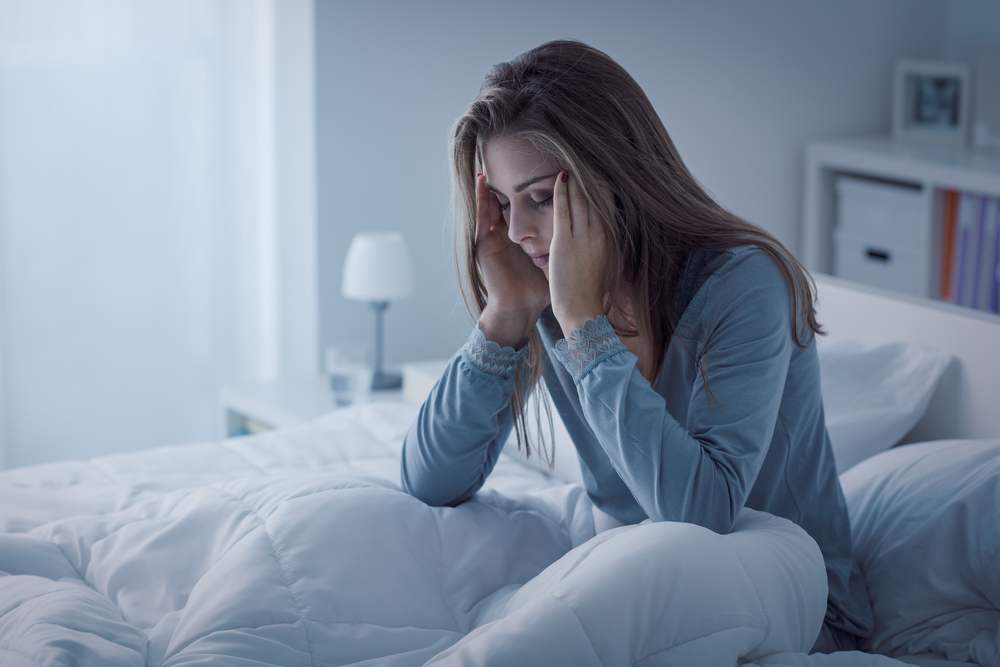Are you struggling to get a good night’s sleep? Wondering how to combat insomnia naturally? Well, insomnia, the inability to fall asleep or stay asleep, is a common sleep disorder that affects millions of people worldwide. Not sleeping well can impact your day-to-day life, leaving you feeling exhausted and out of sorts. But you know what, there are natural treatment options for insomnia that can help you get better sleep!
Many are turning to gentle, effective remedies that can be easily practiced at home. In this blog, we’ll explore the best natural treatments to help you enjoy a deeper, more restful sleep. Let’s get started!
Contents
Quick Quiz: Is It Insomnia?
Curious to know if what you’re experiencing is actually insomnia? We’ve got just the thing for you. Before diving into our natural treatment tips, why not take a quick and easy quiz to assess your sleep situation?
It’s an affordable and straightforward way to diagnose your symptoms. Don’t miss out on this opportunity to better understand your sleep patterns and potentially confirm if insomnia is the culprit behind your restless nights. Click on the link below 👇👇
Best Natural Treatments for Insomnia: Sleep Better, Naturally

It’s not always necessary to get a prescription to take control of insomnia or sleep problems. In fact, many effective solutions are available right in the realm of natural treatments. These remedies can help you achieve better sleep without the need for medications. So, let’s delve into the best natural treatments for insomnia, offering you safe and gentle ways to ease into a restful night’s sleep.
- Establish a Relaxing Bedtime Routine: Create a calming routine before bed. This could include reading, listening to soft music, or practicing gentle yoga. Consistency is key.
- Mindfulness and Meditation: Practicing mindfulness or meditation can help calm a busy mind, making it easier to fall asleep.
- Herbal Teas: Certain herbal teas, like chamomile or lavender, are known for their relaxing properties and can be a soothing part of your bedtime routine.
- Limit Screen Time Before Bed: The blue light from screens can interfere with your sleep cycle. Try to switch off electronic devices at least an hour before bed.
- Comfortable Sleep Environment: Ensure your bedroom is conducive to sleep – cool, dark, and quiet. Investing in a comfortable mattress and pillows can also make a big difference.
- Regular Exercise: Regular physical activity can improve sleep quality, but try to avoid vigorous exercise close to bedtime.
- Controlled Breathing Techniques: Practices like deep breathing or the 4-7-8 technique can help you relax and fall asleep faster.
- Avoid Caffeine and Heavy Meals Before Bed: Caffeine can disrupt your sleep, so avoid coffee, tea, or other caffeinated drinks in the late afternoon and evening. Also, heavy or rich meals can make it harder to fall asleep.
Some Other Natural Ways to Cure Insomnia
 There are several herbs and supplements known for their sleep-promoting properties. Here’s how you can incorporate them into your routine for better sleep:
There are several herbs and supplements known for their sleep-promoting properties. Here’s how you can incorporate them into your routine for better sleep:
- Lavender: Renowned for its calming and soothing effects, lavender can be used in various forms. Consider adding a few drops of lavender oil to a diffuser in your bedroom, or use a lavender-scented pillow spray. You can also sip on lavender tea before bed.
- Chamomile: A classic sleep aid, chamomile tea can be a relaxing bedtime ritual. Its mild sedative effect can help ease you into sleep. Enjoy a warm cup of chamomile tea about 30 minutes before you plan to go to bed.
- Magnesium: This mineral plays a key role in sleep regulation. Magnesium supplements can help calm the nervous system and prepare your body for rest. Foods rich in magnesium, like almonds, spinach, and pumpkin seeds, can also be incorporated into your diet.
- Cinnamon: Known for its comforting and warming properties, cinnamon can be added to warm milk or herbal tea before bed. It may help regulate blood sugar levels, which can indirectly promote better sleep.
- Indian Ginseng (Ashwagandha): This herb, also known as Ashwagandha, is used in Ayurvedic medicine to reduce stress and promote relaxation. You can take it as a supplement, or add powdered ashwagandha to warm milk or a smoothie.
- Melatonin: While your body naturally produces melatonin, supplementing with it can be beneficial, especially for those with disrupted sleep cycles. Melatonin supplements can be particularly helpful for people experiencing jet lag or shift work sleep disorder.
It’s important to consult with a healthcare provider before starting any new supplement, especially if you have existing health conditions or are taking other medications. They can guide you on appropriate dosages and ensure that these remedies are safe for you.
Conclusion
In conclusion, many natural treatments for insomnia can help improve sleep quality. Mindfulness meditation, yoga, and exercise can promote relaxation and reduce stress. Massage, acupuncture, and hypnosis can also be effective in reducing anxiety and promoting relaxation. Natural remedies such as lavender oil, melatonin, valerian supplements, and chamomile tea have also been shown to improve sleep quality. It’s important to speak with a healthcare provider before trying any new natural remedies or treatments for insomnia, particularly if you have a pre-existing medical condition or are taking medications.
For more information, please contact MantraCare. Sleep is an essential part of our daily routine and it plays a significant role in maintaining a healthy body and mind. If you have any queries regarding Online Insomnia Counseling experienced therapists at MantraCare can help: Book a trial therapy session
FAQs
- What is the strongest herb for sleep?
Valerian root is often considered one of the strongest herbs for promoting sleep. It’s known for its sedative properties and is commonly used to improve sleep quality and reduce the time it takes to fall asleep. - What is causing my insomnia?
Insomnia can be caused by a variety of factors including stress, anxiety, depression, lifestyle habits (like irregular sleep schedules or consuming caffeine late in the day), certain medications, and underlying health conditions. It’s important to consult with a healthcare professional to determine the specific cause of your insomnia. - What foods are good for insomnia?
Foods that are high in magnesium and potassium, such as bananas, almonds, and leafy greens, can be beneficial for insomnia. Foods containing tryptophan, like turkey and dairy products, may also help, as tryptophan is a precursor to melatonin, a hormone that regulates sleep. - What can I drink to help me sleep?
Herbal teas like chamomile, lavender, and valerian root tea are popular choices. Warm milk is also a traditional remedy, as it contains tryptophan. Avoiding caffeine and alcohol close to bedtime is also crucial. - How much sleep is said to be enough?
Generally, adults need 7-9 hours of sleep per night. However, the exact amount can vary from person to person. It’s important to listen to your body and notice how you feel during the day to determine if you’re getting enough rest.


